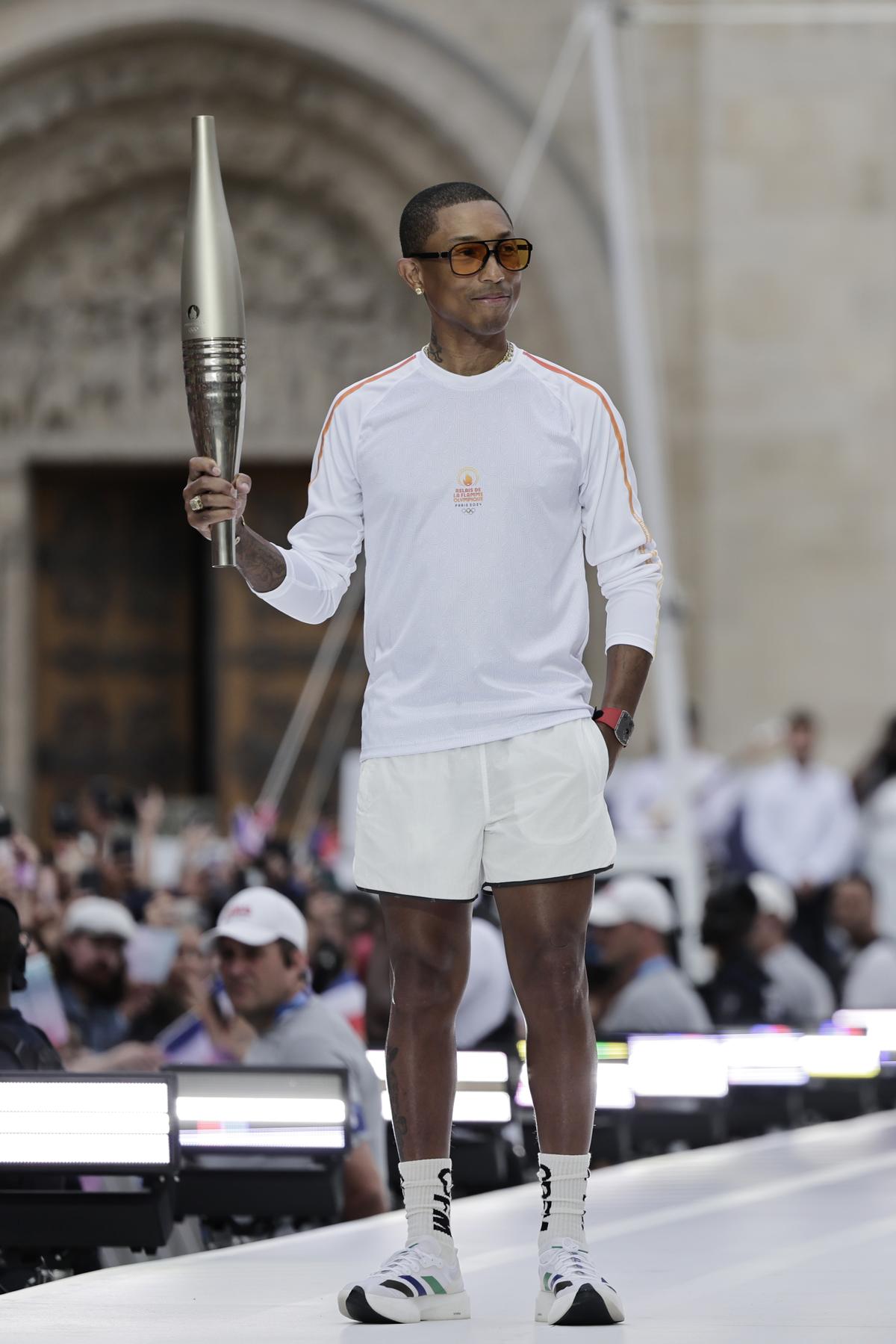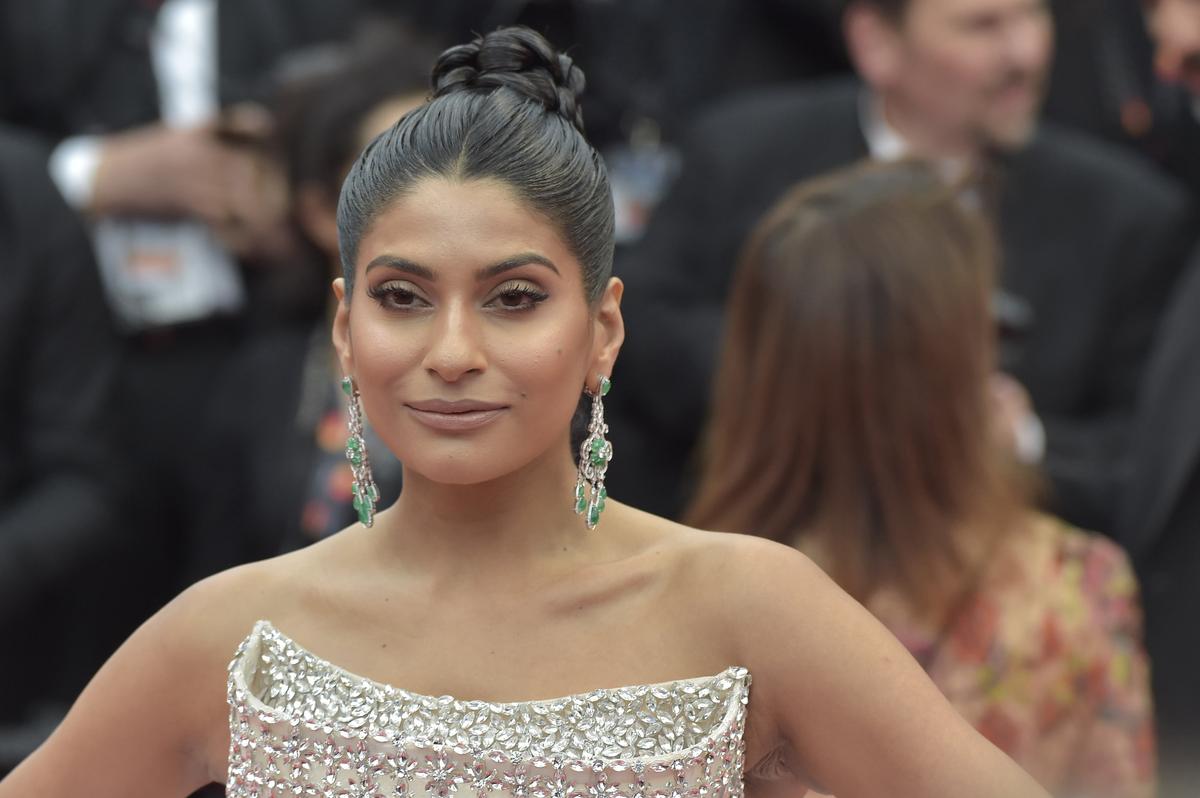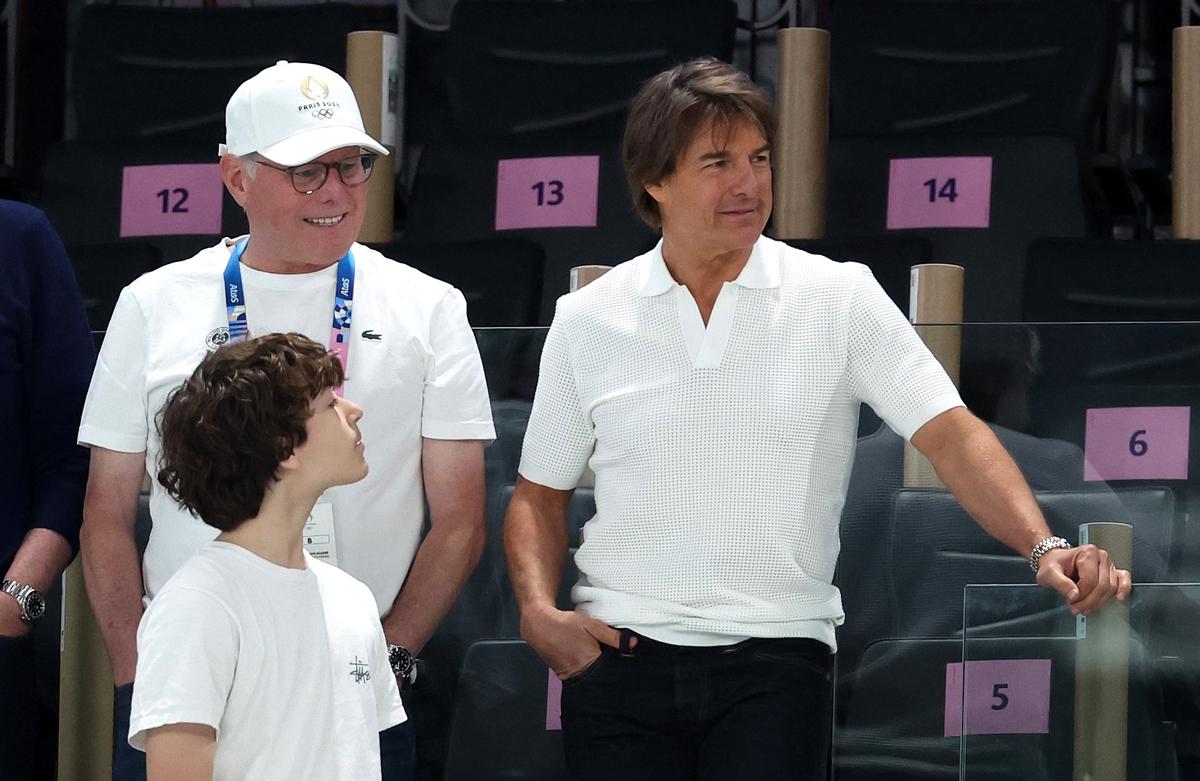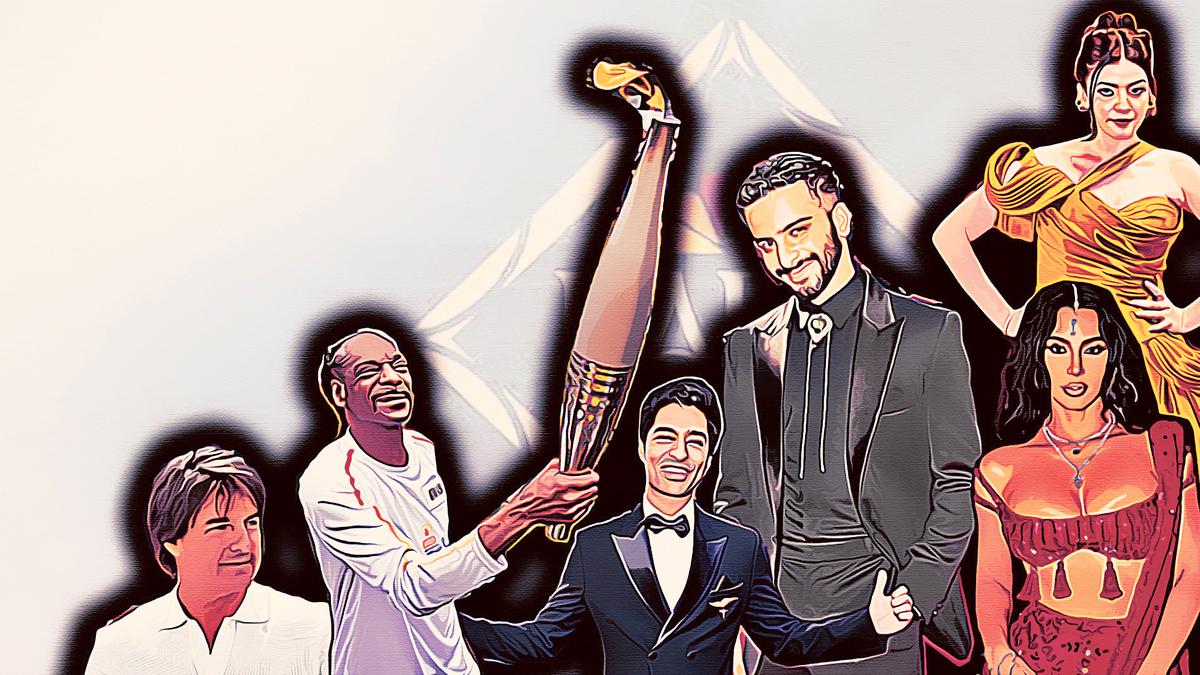Look, I know you’re tired of hearing about that wedding, yes the Ambani one, but it was a significant event. Not (just) because of the number of events they created and brands they built, or the huge chocolate bar sized pages, or the number of private flights they took to and from different places.
The Ambani wedding was a significant event because it successfully announced the coming of influencers into the mainstream. While Ori, who is so famous that he needs neither a second name nor, indeed, a proper first name, has long been a fixture at Ambani events, by the time the wedding caravan reached Mumbai for the big day, the call sheet of influencers attending the wedding swelled to dozens or even hundreds.
Kim Kardashian and Khloe Kardashian in Mumbai, India for the Ambani wedding. | Photo Credit: Getty Images
If you follow them (or even if you don’t, they will still show up on your feed), you can clearly see the agenda of the day. For example, one day was about the jewellery worn again by the Ambani women, another was about floral dupattas, the third was about the respect shown to the nani who helped raise the groom, and so on.
As the proceedings progressed, the organisers doubled down on influencers, eventually bringing in the OG, the person who practically created this industry of influencers—Kim Kardashian. The moment the visuals of Kim K, decked out in a deep red lehenga, walking to the venue with Nita Ambani, holding hands, were shown, was the moment influencers stepped out of our phone screens and into the centre of our lives. I can predict with reasonable certainty that influencers will now be a part of most weddings, starting with the elite and gradually moving down the class lines.

American rapper and artist Pharrell Williams, who also manages the LVMH men’s collection, during the 2024 Paris Olympic Games torch relay in Saint-Denis, outside Paris. | Photo credit: Getty Images
now at the olympics
None of this is surprising. The last few years have seen a steady rise in the value, relevance and influence of influencers. The social media feed of the ongoing Olympic Games is primarily created by influencers. The official Olympic site itself has a section on influencers, plus big brands have brought in their own arsenal of sports-influencers. If a decade ago, someone said that rapper Snoop Dogg would one day have fun with the Olympic torch, we would have laughed. Well, that’s exactly what happened last week.
Earlier this year, the Cannes Film Festival saw only influencers walk the red carpet. It didn’t matter that they weren’t movie stars or filmmakers or connected to cinema in any way. A portion of them were from that allied business, fashion, but there were many who had so little connection to the film festival that it was laughable. I saw a video of an Indian fin-tech influencer, a stock market tipster, walking around the French Riviera promenading, and then tripping over himself explaining what he was doing there. If a movie star can be paid millions to promote a sportswear brand, why can’t a common man who once made a funny video that went viral be paid tens of millions to act like a movie star at a film festival? Whoever gets the most attention wins.

Influencer Farhana Bodi at the Cannes Film Festival 2024 | Photo Credit: Getty Images
Corporate brands were the first to hire influencers as salaried spokespeople, thereby guaranteeing the “authenticity” of user reviews that have access and are not at all authentic. The simplicity of this business proposition – money in exchange for praise – ensured that the model spread quite quickly, so much so that an influencer who was extolling the virtues of taking probiotic supplements for gut health one day found himself, within a year, interviewing cabinet ministers on the country’s plans for digital leadership.
Prime Minister Narendra Modi, who has projected himself as a political influencer of sorts, quickly understood the importance of this. In view of the 2024 elections, he gave interviews only to friendly media persons and influential people.

Tom Cruise (right) competes in the Artistic Gymnastics Women’s Qualification on day two of the Olympic Games Paris 2024 at the Bercy Arena. | Photo credit: Getty Images
Slaves to our screens
No one in this chain of communication is loyal to the truth, only to the money, and everyone is happy, including the end consumers – people like us – who, whether we like it or not, have become lazy slaves to our screens. In fact, in most social circles, anyone who stands up and expresses any opinion contrary to this culture is immediately classified as a Luddite. “Sit down, boomer,” is the usual way to silence them.
In the past, I too have made the mistake of rolling my eyes at these bizarre new events, and then feeling foolish when they became a trend adopted by everyone. Which is why I now feel comfortable predicting that most weddings in the future will have influencers on the guest list. As unlikely as they may be, the Ambanis were the first to get into this lucrative new business, and the rest of us will follow. Because there are only two kinds of people in the world now. Those who are influential and those who can’t get enough of them.
The author has written ‘Independence Day: A People’s History.’
